
The Role of Nutrition During Cancer Treatment
The treatment of cancer may cause changes in how you eat and how your body reacts to food. Good nutrition during treatment is crucial for better outcomes but can be challenging to achieve, leading to malnutrition.
Malnutrition Among Cancer Patients

40 – 70% of patients have
MALNUTRITION

1 in 5 patients pass away due to malnutrition-related reasons
Common Nutritional Problems Among Cancer Patients
UNDERNOURISHED
WEIGHT LOSS
CACHEXIA
| EFFECTS OF MALNUTRITION |
|
| BENEFITS OF GOOD NUTRITION |
|
Obtain Enough Nutrition From These Food Groups to Maximise the Benefits:
Carbohydrates
Main Source of energy for the body
eg: rice, bread, pasta, cereal, potatoes
Proteins
Rebuild muscle, repair injured and damaged tissue and fight infestion
eg: chicken, fish, egg, tofu, lentils, lean meat

Fluids
For cell functions and to replace fluid loss due to treatment side effects
eg: water, juice, soup, milk
Fats (included in cooking)
Provide and store energy, insulate body and transport some vitamins
Limit saturated fats and avoid trans fats. Choose unsaturated fats
eg: nuts and plant oil
Vitamins and Minerals
Support body function and metabolism
eg: fruits, whole grains and vegetables
Quick Snack Options
Snacking
Include 1 to 2 snacks in between meals. Keep snacks available at all times
- Bread with butter
- Sandwich
- Soft bread with cheese
- Bun and roll
- Biscuits with cream
- Nuts and seeds
- Hard boiled/ Scrambled egg/ Omelette
- Plain cakes
- Puddingand custards
- Yogurt
- Milk or soy drinks
- Milkshakes
- Cream soup
- Stamed chicken bun/pau
Add extra energy and Protein into Your Food
Here are some ingredients that can add extra calories into your food
- Soft margarine
- Salad dressing and mayonnaise
- Honey
- Cheese
- Milk powder
- Jam or marmalade
- Healthy cooking oils
- Peanut butter
- Banana/ Mango
| Type of protein source | Preparation method |
| Cheese |
|
| Milk or powdered milk |
|
| Commercial nutritional supplement |
|
| Fish, poultry and meat |
|
| Eggs |
|
| Bean and legumes |
|
Side Effects During Cancer Treatment
You may experience any of the side effects below while undergoing your treatment
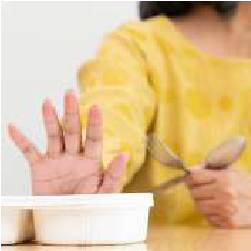
Loss of Appetite
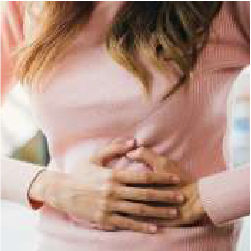
Nausea/Vomiting

Fatigue

Diarrhea/ Constipation

Change in taste or smell
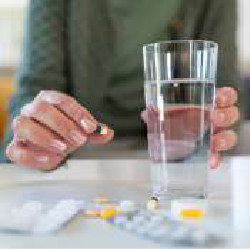
Weak immune system
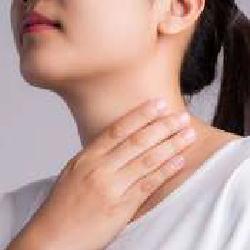
Dry/ Sore mouth or sore throat

Unintended weight loss
Tips to Overcome Side Effects from Treatments
Loss of appetite is the feeling of not wanting to eat much. It can be due to the illness itself, medication, or feelings of stress and fear

- Eat 5 - 6 small meals instead of 3 large meals
- Drink when you don’t want to eat (e.g. smoothie, milkshake, fruit juice, milk, soy milk)
- Consume easy-to-carry snacks Add extra calories and protein into your food
- Do light exercises and be physically active to stimulate appetite
- Eat your meal separately from your drinks
Nausea happens when you feel uneasy or sick in your stomach, sometimes leading to vomiting. Certain food smells may also trigger nausea and vomiting.

- Eat 5 - 6 small meals instead of 3 large meals
- Eat soft, easy-to-digest and bland food
- Chew food slowly
- Suck on hard candies such as peppermints or lemon drops
- Wear loose and comfortable clothes
- Sit or lie with your head up for at least 1 hour after meals
- Avoid spicy, greasy or fried food and food with strong smells
- Avoid eating in a room that is too warm or has a strong smell
- Do not drink right before or after meals
- Do not skip meals and snacks
Constipation happens when you have fewer bowel movements. The stool becomes hard, dry, and tough to pass, leading to pain, bloating, or nausea. Medication, insucient liquid intake, low fibre in your diet, or lack of physical activity may also cause constipation.

- Drink at least 8 cups of liquid per day (hot drinks may work better) unless contraindicated
- Eat more high-fibre food such as whole grains, vegetables and fruits
- Do light exercises (e.g. walking, stretching, doing house chores) and be physically active
Nausea happens when you feel uneasy or sick in your stomach, sometimes leading to vomiting. Certain food smells may also trigger nausea and vomiting.
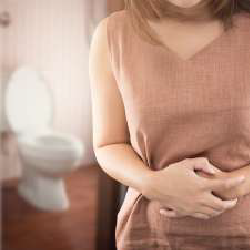
- Eat 5 - 6 small meals instead of 3 large meals
- Drink plenty of water throughout the day
- Eat food or drink liquids at room temperature
- Take high-sodium, high-potassium food and drinks, e.g. banana, electrolyte drink, soup
- Limit milk and dairy products that may worsen the symptoms (choose lactose-free products)
- Avoid high-fibre food
- Avoid greasy, spicy and overly sweet food
- Avoid overly sweet and caeinated beverages
- Avoid carbonated drinks or foods that cause gas, e.g. legumes, broccoli and cauliflower
Food might be tasteless, and some food could taste bitter or metallic. Your sense of smell might also change. While these issues cannot always be avoided, they often improve after the treatment is finished

- Serve food at room temperature
- Chew food longer for it to taste better
- Season and marinate food using spices, lemon or vinegar
- Use sugar-free lemon drops, peppermints or chewing gum
- Rinse your mouth with alcohol-free mouthwash or salt water before meals to clear the taste buds
- Use plastic utensils if you have a metallic taste in your mouth
Some treatments may cause you to have an upset stomach. When this happens, you may want to:

- Choose lactose-free or low-lactose product
- Try milk substitutes, e.g. soy milk or almond milk
- Eat non-dairy calcium options such as edamame, spinach or calcium-fortified products
Cancer and its treatments can impact the immune system, which is responsible for the body's defence. Individuals with cancer might face a higher risk of infections due to alterations in their immune system.

- Eat food that is thoroughly cooked
- Eat food served at room temperature within 2 hours
- Thaw frozen food using a microwave or chiller
- When eating canned food, make sure the can is in good condition (not dented or rusted)
- Choose freshly cooked food if eating out
- Practise personal hygiene, e.g. regular hand washing, bathing daily and rinsing your mouth
- Avoid raw foo e.g. salad, ulam or raw Japanese food
- Avoid half-cooked food such as runny eggs and medium-cooked meat
A sore mouth or throat occurs when the lining of your mouth, lips, or throat is inflamed and in pain. This discomfort can make eating dicult and potentially lead to unintentional weight loss.

- Eat 5 - 6 small meals instead of 3 large meals
- Eat soft, moist and easy-to-chew food
- Cut food into small pieces
- Eat moist food with sauces, gravy or soup
- Cool hot food and drink liquids at room temperature
- Add proteins and calories into food, e.g. prepare omelettes with milk and butter or mix soup with protein powder
- Drink with straw
- Gargle or rinse your mouth after every meal and before sleep with alcohol-free mouthwash
- Avoid food that may hurt your mouth such as dry, hard, crunchy, salty, spicy, sour or hot food
Dry mouth happens when there is less saliva than usual, making it challenging to talk, chew, and swallow. Treatment and certain medications may contribute to dry mouth
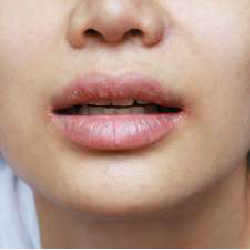
- Sip water throughout the day
- Chew on chewing gums or suck on ice chips, hard candy, frozen fruits or popsicles to stimulate saliva production
- Eat tangy food such as mango, starfruit or orange to stimulate the saliva in the mouth
- Eat food that is soft and easy to swallow
- Eat moist food with sauces, gravy or soup
- Rinse your mouth regularly
- Apply lip balm
- Use a humidifier to moisten the air in your room
- Avoid food that may hurt your mouth such as dry, hard, crunchy, salty, spicy or sour food
- Avoid mouthwash that has alcoholAvoid mouthwash that has alcohol
Weight loss can be caused either by cancer or the side e ects of treatment, e.g. nausea and vomiting or by stress and anxiety. It is common for individuals going through cancer treatment to have weight loss.

- Maintain a consistent eating schedule
- Eat 5 - 6 small meals instead of 3 large meals
- Drink smoothies or milkshakes when you do not feel like eating
- Add proteins and calories into food, e.g. prepare omelettes with milk and butter or mix soup with protein powder

